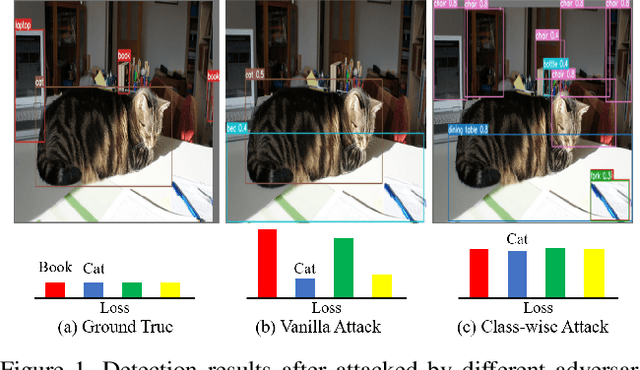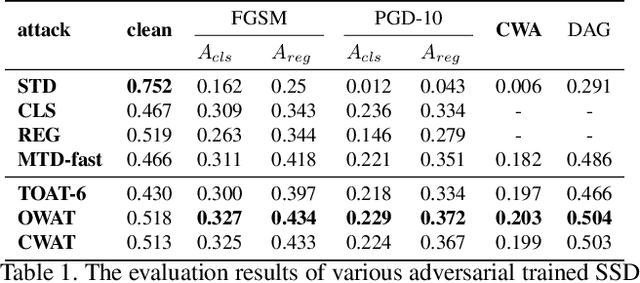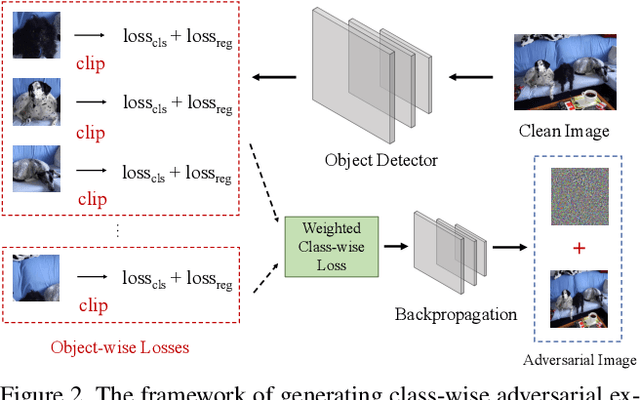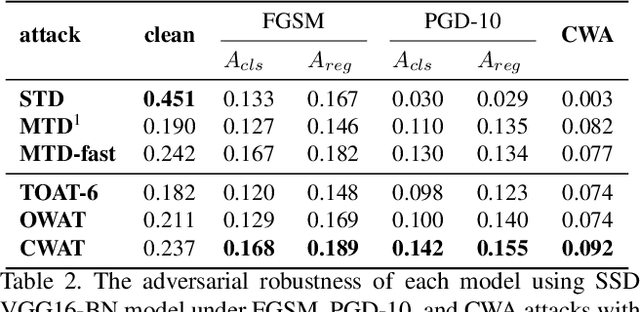Bo-Han Kung
Enhancing Certified Robustness via Block Reflector Orthogonal Layers and Logit Annealing Loss
May 21, 2025Abstract:Lipschitz neural networks are well-known for providing certified robustness in deep learning. In this paper, we present a novel, efficient Block Reflector Orthogonal (BRO) layer that enhances the capability of orthogonal layers on constructing more expressive Lipschitz neural architectures. In addition, by theoretically analyzing the nature of Lipschitz neural networks, we introduce a new loss function that employs an annealing mechanism to increase margin for most data points. This enables Lipschitz models to provide better certified robustness. By employing our BRO layer and loss function, we design BRONet - a simple yet effective Lipschitz neural network that achieves state-of-the-art certified robustness. Extensive experiments and empirical analysis on CIFAR-10/100, Tiny-ImageNet, and ImageNet validate that our method outperforms existing baselines. The implementation is available at \href{https://github.com/ntuaislab/BRONet}{https://github.com/ntuaislab/BRONet}.
QCRS: Improve Randomized Smoothing using Quasi-Concave Optimization
Feb 01, 2023



Abstract:Randomized smoothing is currently the state-of-the-art method that provides certified robustness for deep neural networks. However, it often cannot achieve an adequate certified region on real-world datasets. One way to obtain a larger certified region is to use an input-specific algorithm instead of using a fixed Gaussian filter for all data points. Several methods based on this idea have been proposed, but they either suffer from high computational costs or gain marginal improvement in certified radius. In this work, we show that by exploiting the quasiconvex problem structure, we can find the optimal certified radii for most data points with slight computational overhead. This observation leads to an efficient and effective input-specific randomized smoothing algorithm. We conduct extensive experiments and empirical analysis on Cifar10 and ImageNet. The results show that the proposed method significantly enhances the certified radii with low computational overhead.
Class-Aware Robust Adversarial Training for Object Detection
Mar 31, 2021



Abstract:Object detection is an important computer vision task with plenty of real-world applications; therefore, how to enhance its robustness against adversarial attacks has emerged as a crucial issue. However, most of the previous defense methods focused on the classification task and had few analysis in the context of the object detection task. In this work, to address the issue, we present a novel class-aware robust adversarial training paradigm for the object detection task. For a given image, the proposed approach generates an universal adversarial perturbation to simultaneously attack all the occurred objects in the image through jointly maximizing the respective loss for each object. Meanwhile, instead of normalizing the total loss with the number of objects, the proposed approach decomposes the total loss into class-wise losses and normalizes each class loss using the number of objects for the class. The adversarial training based on the class weighted loss can not only balances the influence of each class but also effectively and evenly improves the adversarial robustness of trained models for all the object classes as compared with the previous defense methods. Furthermore, with the recent development of fast adversarial training, we provide a fast version of the proposed algorithm which can be trained faster than the traditional adversarial training while keeping comparable performance. With extensive experiments on the challenging PASCAL-VOC and MS-COCO datasets, the evaluation results demonstrate that the proposed defense methods can effectively enhance the robustness of the object detection models.
 Add to Chrome
Add to Chrome Add to Firefox
Add to Firefox Add to Edge
Add to Edge